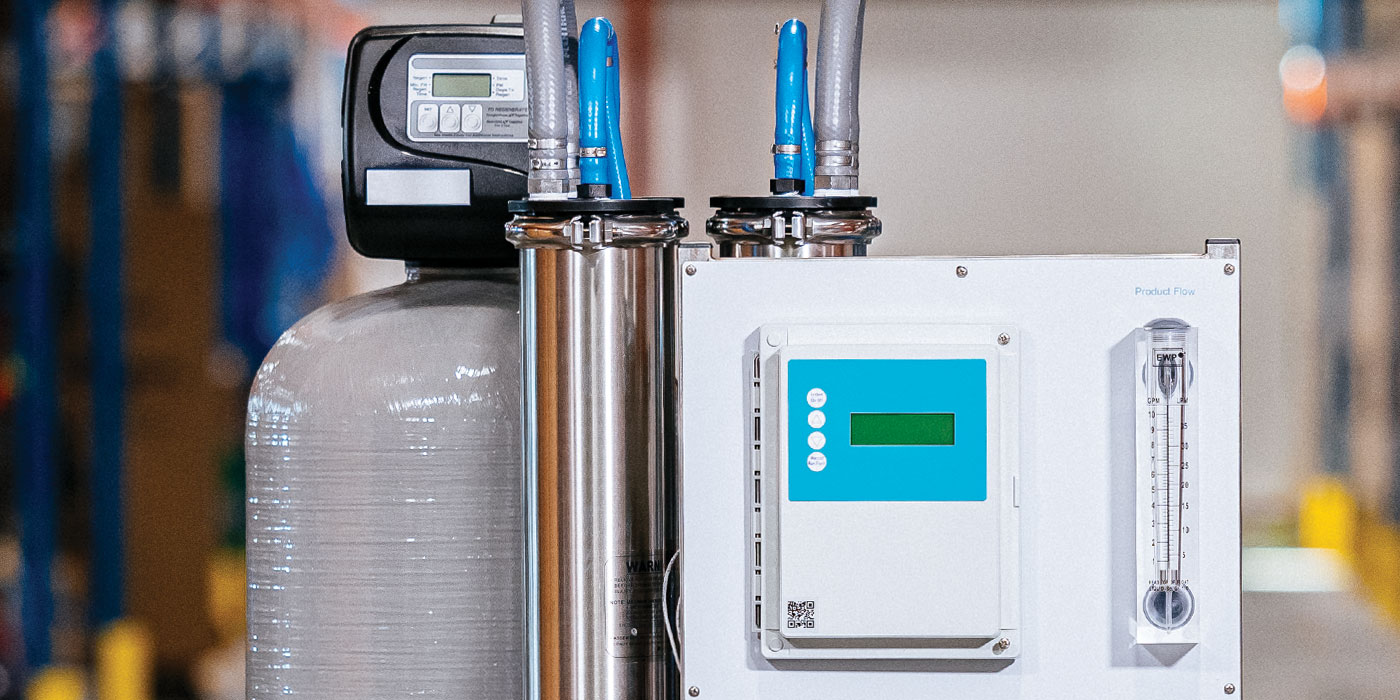When buying, opening, growing and building a carwash business, the balance of risk versus reward must always be considered. It’s normal for business owners to take calculated risks to further their business’ growth and meet financial requirements, but at what cost? How much are you willing to risk to reap the rewards you desire?
When I was a full-service carwash owner, I often struggled with decisions based on the risk versus reward factor. Now, as a member of a team of insurance professionals, I have learned several areas carwash owners and operators might contemplate when making such important decisions.
For the purpose of this article, we will discuss various scenarios carwash owners and operators might face when it comes to balancing risks and rewards.
Scenario one: Picky customers
To begin, here is a fun example regarding a detailing department.
A customer comes in for an express detail service, which features a hand wax and an interior super clean. While explaining the service to him, the customer tells you that he is very picky. As the carwash owner/operator, you should take this as a warning sign.
Being a new person on the job, you tell the customer that you are willing to provide the service for $80, knowing you can complete the job in an hour and a half.
Reward: The customer comes in, looks at his vehicle and leaves a happy camper.
Risk: The customer comes in and nitpicks every little spot on and in the vehicle. To wreck your day, you redo a majority of the vehicle to satisfy the picky customer. This now ends up costing you money and losing worker productivity.
Outcome: You may now have a customer for life, or one you would rather not do business with again.
Scenario two: Washing custom cars
A customer is requesting that you wash her brand new Bentley coupe with spinning rims and a luggage rack, which is attached to the vehicle. Keep in mind each rim is valued at $2,000, and the custom-made rack is worth $1,200.
Reward: You wash the vehicle, and the customer leaves with a shiny car with sparkling rims and well-dressed tires.
Risk: Your drive-on team member has a mishap while driving the vehicle onto the conveyor, bending the spinning rim by bumping the protected conveyor rail. As the vehicle continues down the tunnel, a cloth curtain gets caught on the rack, tears it from the vehicle and scratches the trunk of the car.
Outcome: Your carwash has always had a plan in place for any mishaps when a vehicle enters the tunnel. Your procedure allows individuals to be at certain tunnel lookout points with emergency tunnel shutoff switches just in case of an incident.
Or, you have decided to not accept vehicles with spinning rims and roof racks, thus eliminating the risk. Instead of losing the revenue, you offer a hand wash for custom vehicles. Of course, you charge more for the hand wash option because you utilize additional staff for these vehicles.
Note: Recently, a full-service carwash operator washed a Ferrari in his tunnel, and an incident occurred. His damage claim was $4,000 for a $30 wash.
Scenario three: Specially equipped vehicles
A customer in a specially equipped vehicle wants a carwash. This car is the same as a standard vehicle with the exception of the hand accelerator and brakes.
Risk: Your drive-on employee asks the customer to exit the vehicle and then drives it onto the conveyor. Although the employee is cautious when driving the vehicle to the staging area of the conveyor, he neglected to turn the ignition off. As he steps out of the vehicle his T-shirt gets caught on the hand controls which shifts the car into drive, striking the car in front of it. The car then jumps the track and slams into the state-of-the-art carwash equipment you have almost paid off. The estimated damage is $11,675, which is a huge expense compared to the $25 profit from the wash.
Reward: You just received $25 in revenue and now have a loyal customer.
Outcome: Knowing a fellow carwash owner who suffered a similar mishap, you decide to establish some safeguards. Understanding that customers know their specially equipped vehicles better than your staff, you direct the patron to drive her vehicle onto the conveyor. Moreover, you provide additional space in the tunnel by not inserting a car directly in front or behind the vehicle.
Additionally, you have staff members who will explain the dos and don’ts to the driver while moving through the tunnel. You also post other employees at key areas in the tunnel with the emergency tunnel shut-off switches at their sides.
You have implemented your carwash management system to have a specific day for customers with specially equipped vans to call for a hand wash appointment. Once again, the customers should be aware that a hand wash will cost more than the typical tunnel wash, since there is more labor involved in washing their vehicles.
Scenario four: Employees handling money transactions
Since you may have several carwashes, are busy with other business ventures or maybe you are an absentee owner, you have decided to let your staff write checks, deposit funds and make change orders; thus allowing these employees to have a hand in your wallet.
While utilizing your carwash management system, you noticed an extraordinary amount of receipt reversals giving refunds to customers.
Risk: So far, you have never had to deal with employee theft. After several months away from the carwash, you notice more than a thousand dollars in receipt reversals. Additionally, your cashier has a new vehicle she just purchased.
In another scenario with potential employee theft involved, because you trust your long-term manager, you let him take care of your bank deposits while you were away from the carwash. When reviewing your bank statement and canceled checks, you notice some large checks written to a specific vendor. After contacting the owner (vendor) you learn he doesn’t process his account receivables or bank deposits, his manager does.
Reward: While away from the carwash, your trusted staff handles your business beautifully without incident. You decide to provide them with bonuses for the job well done.
Outcome: You can never have too many safeguards in place when it comes to your business’ money. For example, you don’t permit any business check to be sent without your review, approval and/or signature.
When you bought your carwash management system, you took the time to learn the system and all of the reporting features. And, you are able to tell when something doesn’t seem right.
Limiting the risks
By learning your carwash management system, you have the ability to cross reference all transactions, receipts, etc. Likewise, when you set up its security features, you can only permit certain individuals to access specific areas in the management system. Thus, actions, such as allowing receipt reversals, are only approved and completed by the carwash management staff and owners.
As an owner/operator, you can’t be present in all places at the wash all the time. Although you may have all the right procedures and safeguards in place, sometimes things just happen. Fortunately, having a good management system, as well as good insurance coverage when incidents do arise, can help keep your operations running smoothly.
The hypothetical scenarios discussed in this article are not to give you answers on how to handle given situations, but to help stimulate the thought process and encourage discussion.
Ultimately, it boils down to a few questions: Are you willing to wash this vehicle? Should you allow your team members to handle the carwash business’ money? What is truly the risk, and what is the reward? And, is it worth it?
Sam Furno is the president of Western Car Wash Insurance Agency, Wells Fargo Insurance Services USA Inc.














